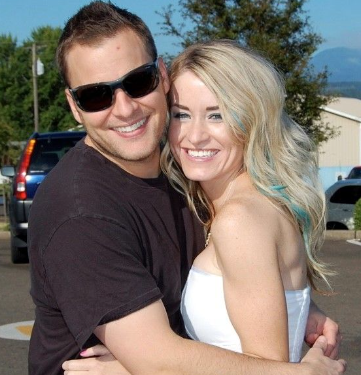By Anne Adkinson
As a member of the Brain injury Alliance Veterans Services team, I advocate on the front lines for Arizona’s military caregivers, connecting them with the resources, education, and support they need to make family life run a bit smoother. It’s been an honor to help those whose selfless acts of love and caring improve our veterans’ lives. The need for investment in community resources and family caregivers cannot be understated.
I have personal experience with the challenges and joys of family caregiving as well. My husband Dave sustained a brain injury in 2003 while deployed in Iraq.
The last few years have been especially challenging, but with the new year now upon us, I feel there are many reasons to look forward to a great 2023. When I think about my family’s journey over the last twenty years and the military families I worked with, I have some clear things on my wish list for next year.
In fact, my New Year’s wish is for medical providers everywhere to understand the power of teaming with family caregivers to provide the best possible healthcare outcomes for survivors of brain injury.
I was reminded of this wish when my husband came down with a serious case of COVID. Because of his underlying medical conditions, we immediately visited an urgent care center to get him Paxlovid, the antiviral medication designed to lower at-risk patients’ odds of hospitalization. Since Dave looks “just fine” but lives with the cognitive challenges of a brain injury, I, as his caregiver, am responsible for facilitating the process for all involved in healthcare appointments.
At the urgent care center, we were told to wait in the crowded waiting room for 30 minutes. However, because of his brain injury, Dave often gets overwhelmed in rooms like this and proceeded to wait in the car just outside the front door. This common adaptation for survivors can ensure a necessary medical appointment gets off to a strong start.
The medical tech eventually called him two hours later, and I informed them he would be right there. Dave exited the car and entered the facility within 30 seconds of his name being called, but the medical tech slammed the door in my face, proclaiming it unacceptable for Dave to not be in the waiting room. A few tense moments passed, and the tech finally relented.
During the intake interview, the tech’s aggravation continued whenever I helped Dave answer questions. As his caregiver, it’s my responsibility to ensure medical providers receive accurate information since his brain injury often prevents him from formulating words and accessing memory. Without my help he becomes overwhelmed and falls back with the answer of, “I’m fine,” leaving his medical concerns unaddressed as the medical staff shuffle off to the next patient. This creates a real barrier to services for those with a brain injury and leaves many secondary medical conditions unaddressed.
I explained to the tech I was there to make everyone’s job easier – from the receptionist to the doctor. I know Dave’s medical history, medication, diagnoses, and current symptoms, and can communicate these precisely to all involved. Without my assistance, progress is hampered for my husband as well as the medical staff.
Compounding the situation, this facility –contracted with the Veterans Administration (VA) – should have been able to treat Dave with a greater understanding of brain injury challenges. As we look toward 2023, it has been 20 years since Dave and many fellow Marines sustained a service-connected brain injury. It’s time for medical providers to be more culturally competent with veteran culture, the way a brain injury can hamper communication of vital medical information, and the crucial role of the family caregiver.
To all the caregivers out there, 2023 will be our year. Make sure you reach out to your state’s Brain Injury Alliance or Association if you care for someone with an acquired brain injury such as stroke, tumor, aneurysm, TBI, concussion, Long-COVID, PTSD, or other brain health concerns.
I would urge professionals to recognize brain injuries a complex and worthy of time spent on continuing education. Know that including the caregiver leads to better health outcomes for the veteran, while also making providers’ jobs much easier. You can connect with The Campaign for Inclusive Care by the Elizabeth Dole Foundation for short training modules teaching how to identify a patient’s caregiver and include them on the care team. Professionals can also earn 2 hours of Continuing Education Units (CEUs).
Psych Armor is another great resource, with short 15-minute modules designed for medical providers to better understand military culture, veterans, and the role of caregivers. CEU credits are available for Healthcare and Human Resource professionals.
Let’s work together for healthier and happier outcomes for members of the brain injury community—survivors and family caregivers alike!
Anne Adkinson is the military family caregiver advocate for the Brain Injury Alliance of Arizona. You can reach out at 888-500-9165 or info@biaaz.org.











